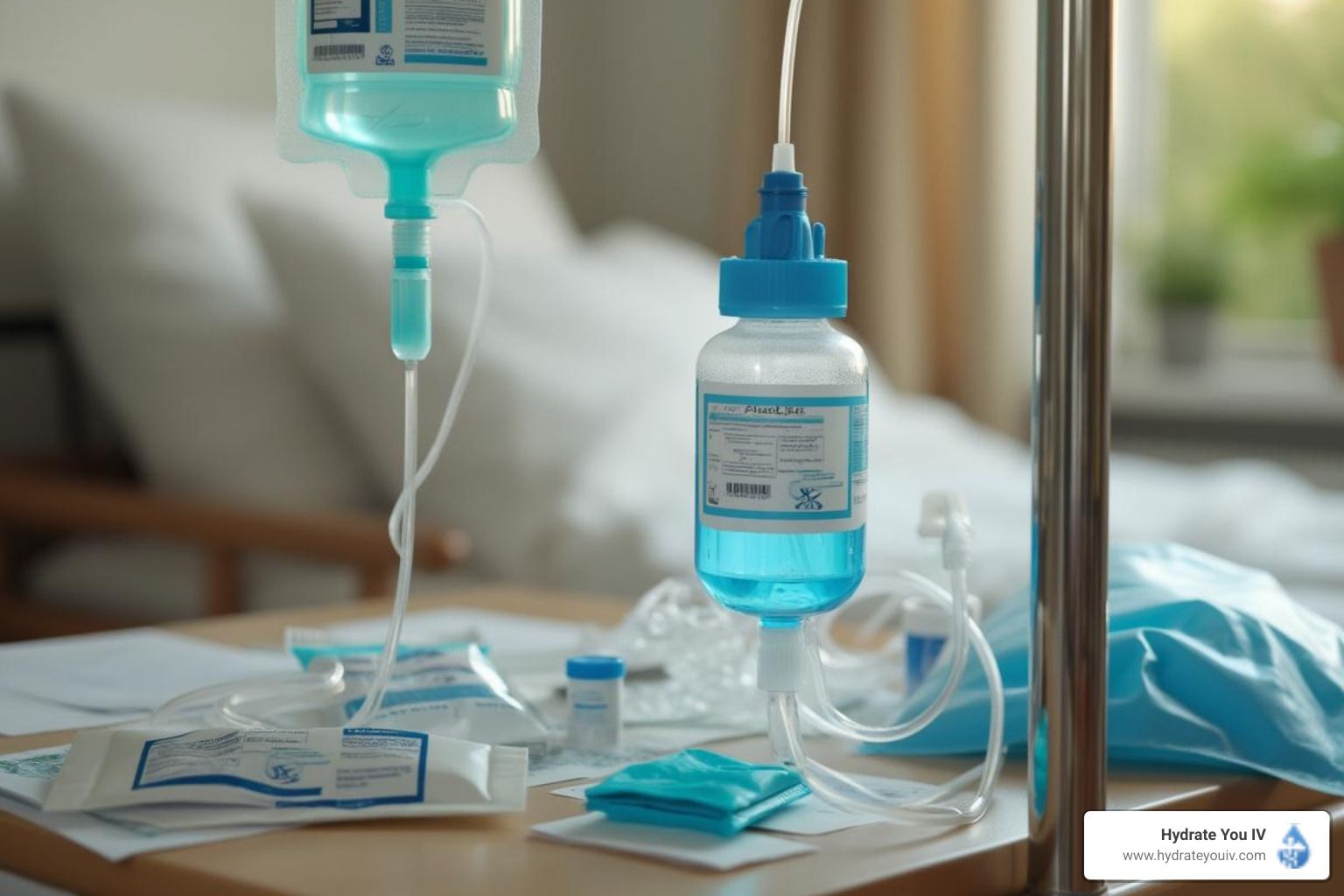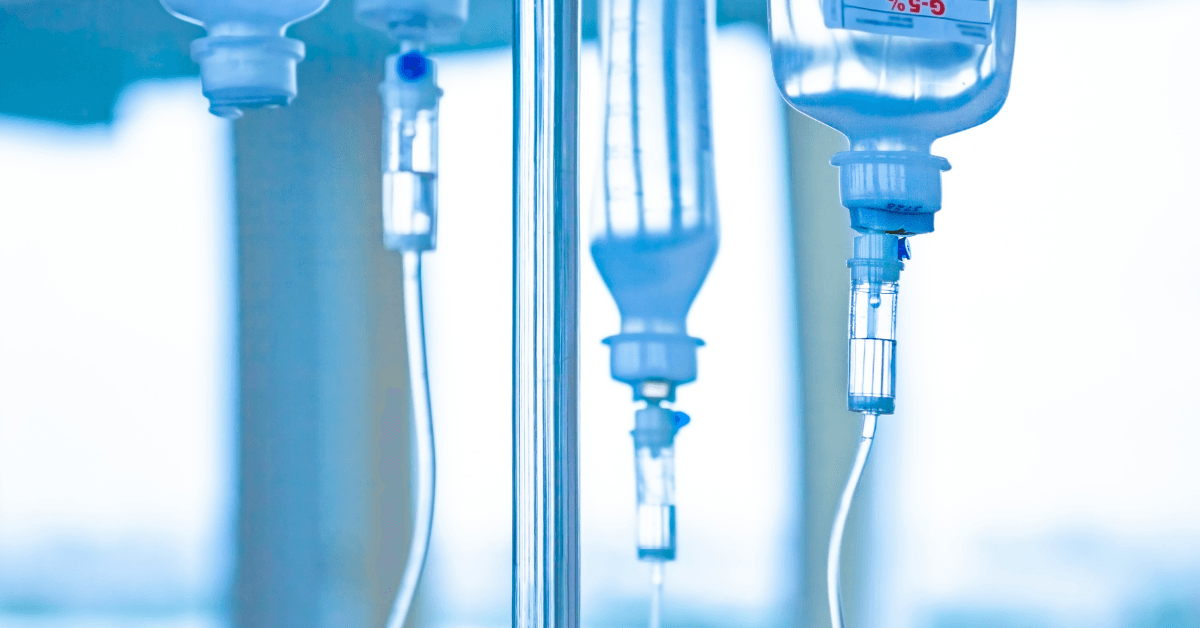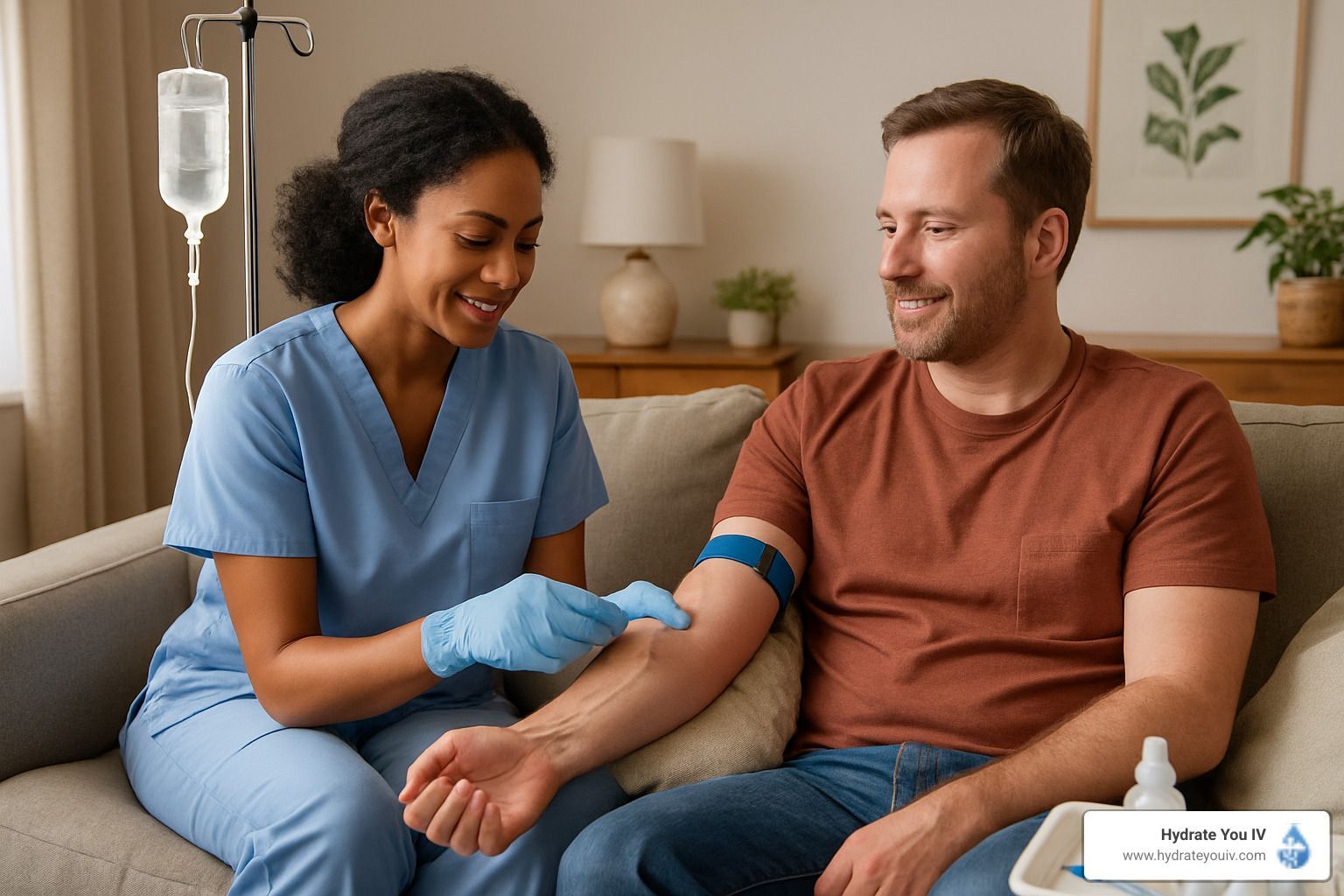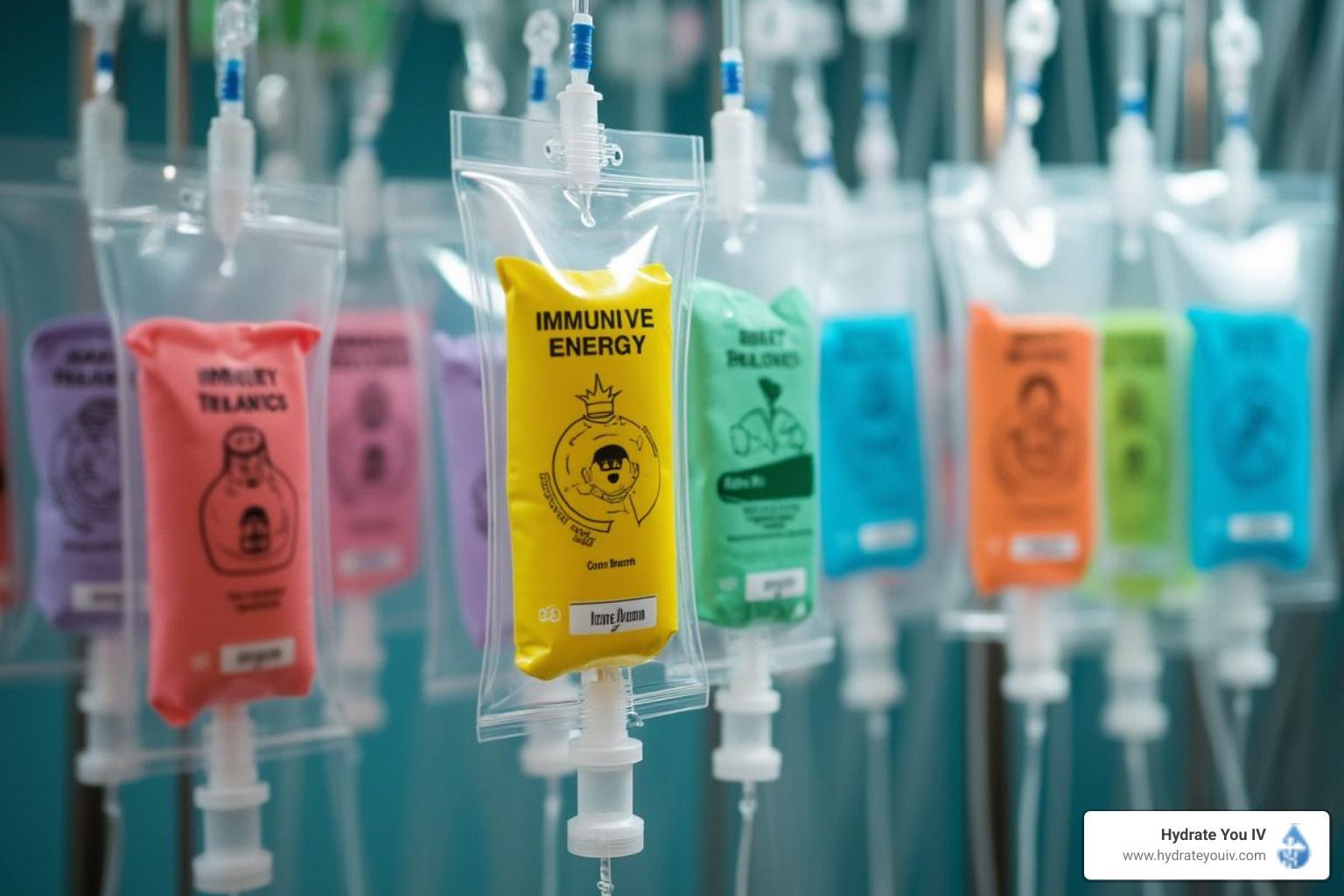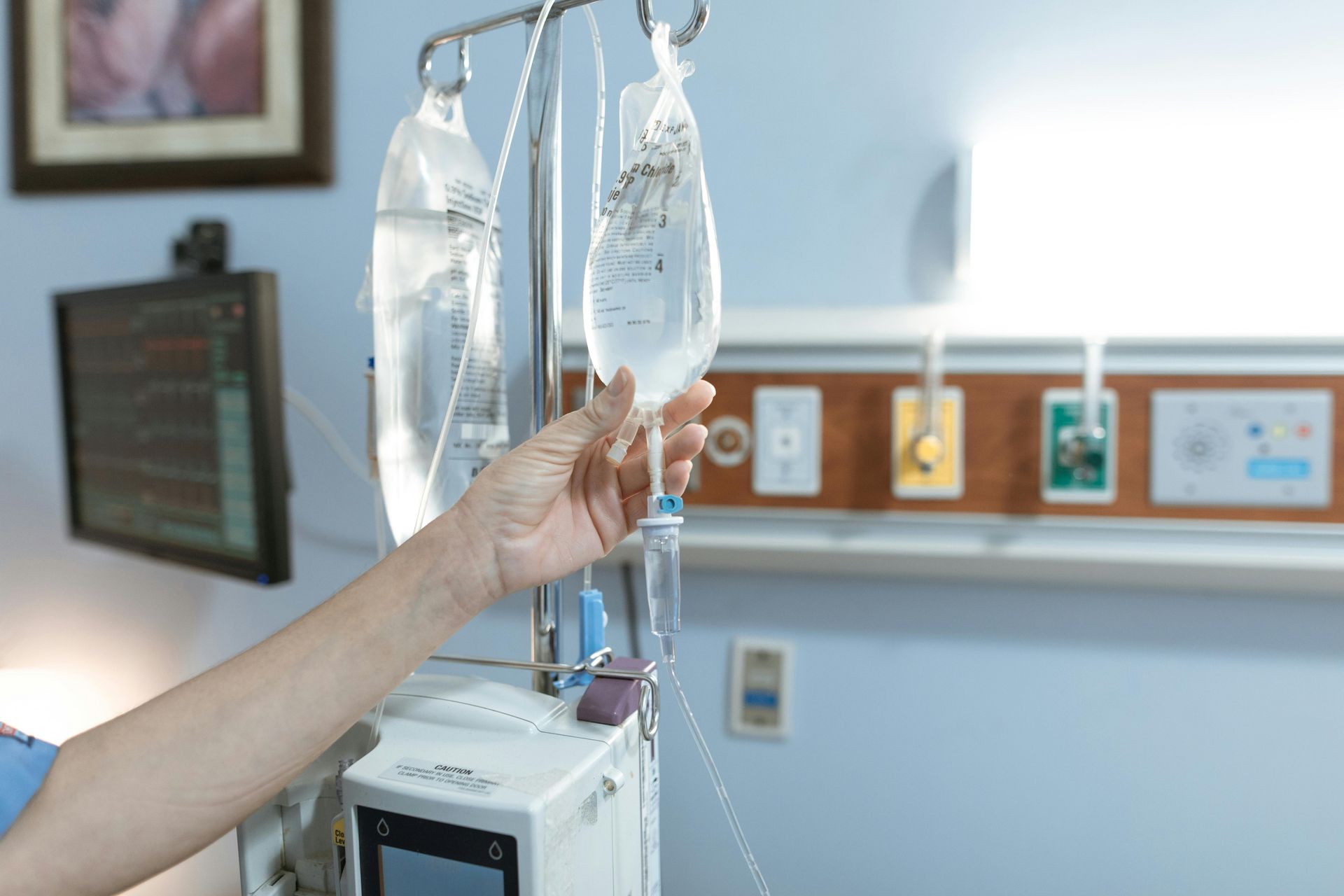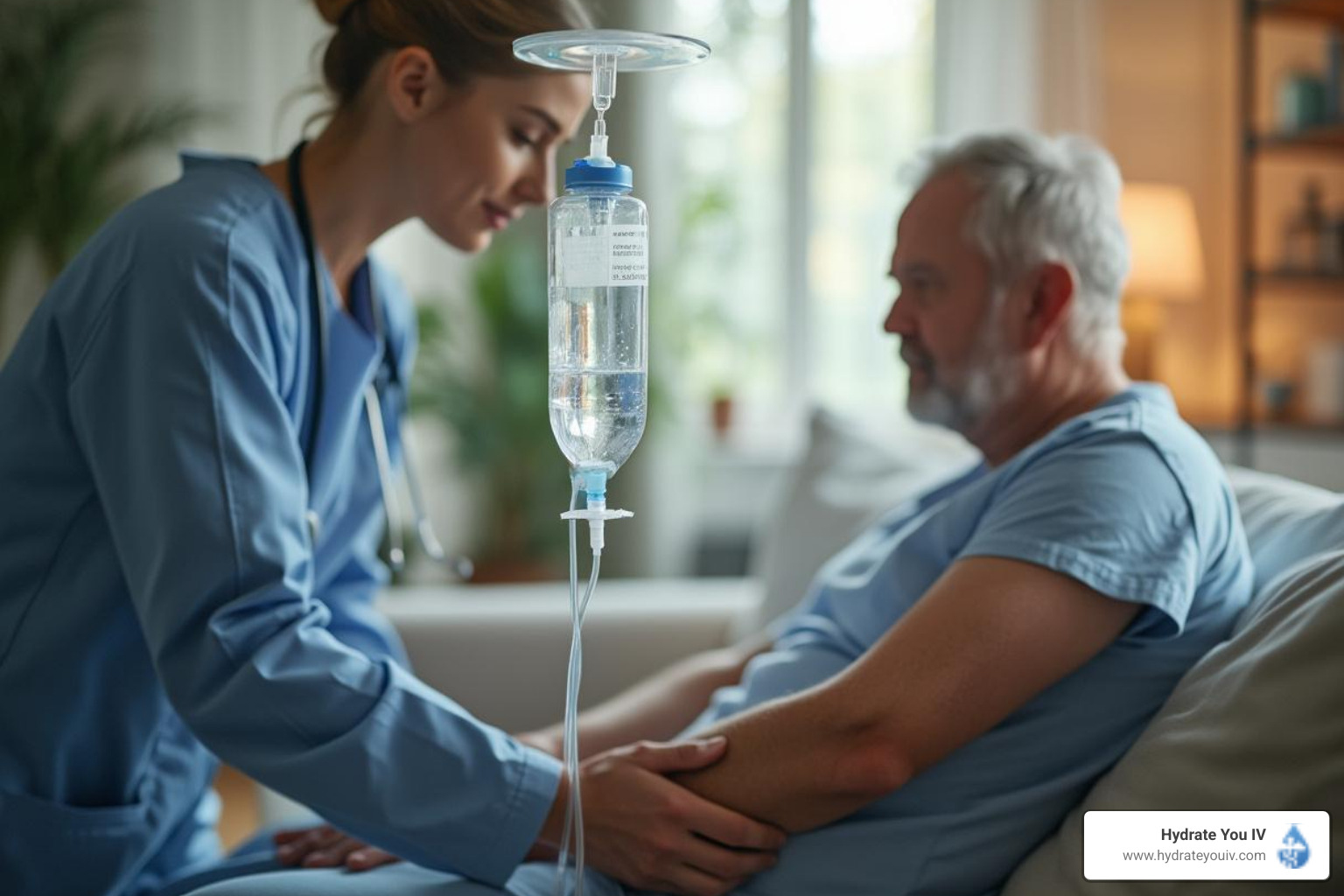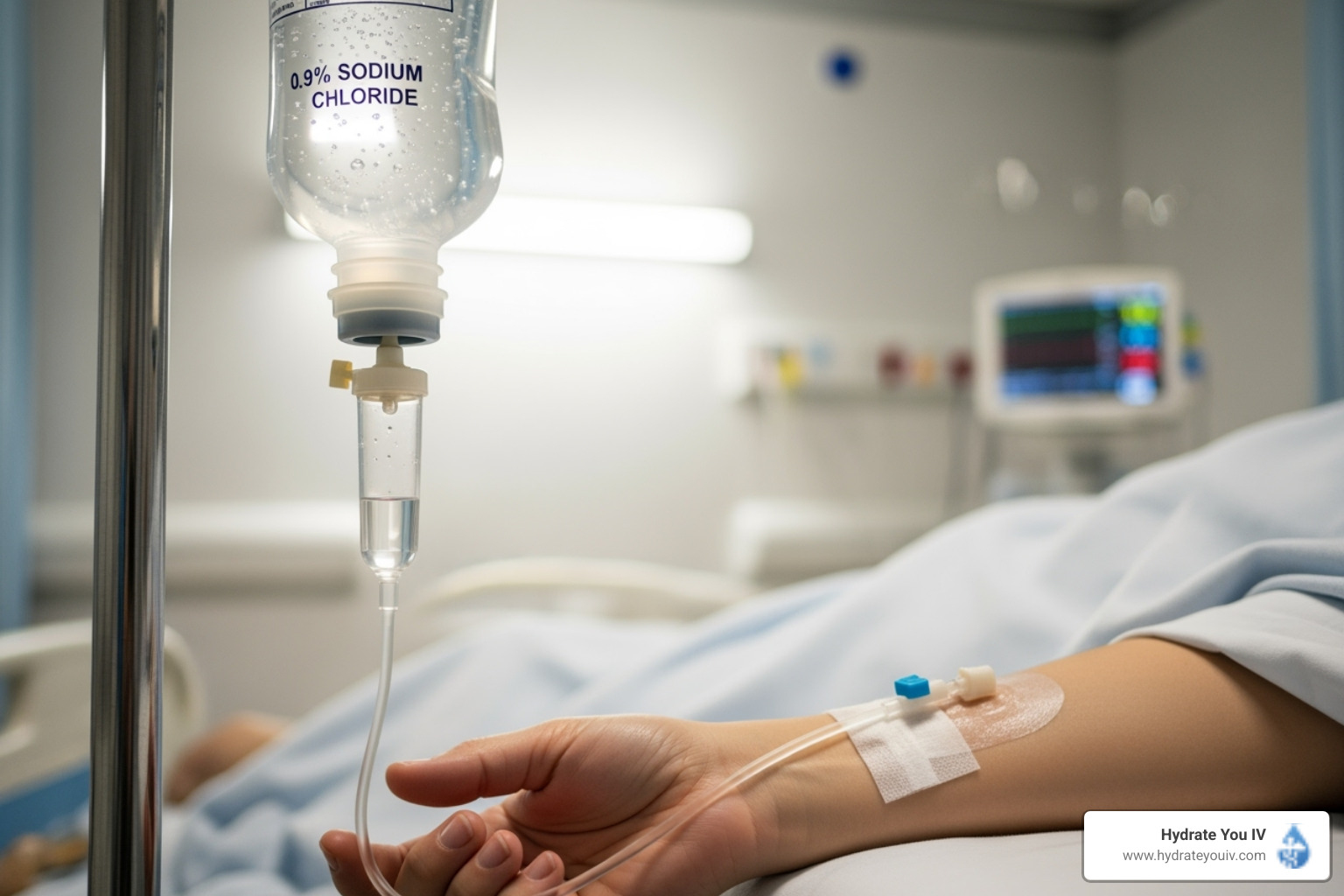IV Therapy vs. Water: Which Hydrates You Faster and Better?
What do you usually do when you experience dehydration symptoms like headaches, dizziness, muscle cramps, lethargy and fatigue? Maybe you brew some tea or ginger ale if your stomach is upset. If you’ve exercised hard, oral rehydration salts and electrolyte drinks can bring relief. You also probably try to drink plenty of water to rehydrate yourself.
But have you ever considered intravenous (IV) therapy? Getting IV fluids can often provide you faster, more effective dehydration relief than home remedies. The reason is that they inject a saline solution filled with beneficial vitamins and minerals directly into your bloodstream. IV hydration vs. drinking water is a matter of personal preference, though. In this guide, we discuss the pros and cons of each.
7 Reasons That IV Hydration Is Better Than Drinking Water
Here are a few of the benefits of IV fluids vs. drinking water:
Potency
Water is great for you, but it doesn’t provide an intense burst of vitamins and minerals like vitamin B, vitamin C, magnesium and zinc. So if you have severe dehydration symptoms, water may not be enough to bring you the relief you need. IV hydration, however, packs a powerful punch to help get you on the mend.
Effectiveness
If you’re mildly dehydrated, a glass of water or two might be all you need. But if you’re seriously unwell, you could drink water all day and still not feel like yourself. IV hydration is specifically designed to be effective for severe, debilitating dehydration symptoms — vitamin absorption from the bloodstream is about 90%, versus about 50% absorption from the digestive system. It can have you up off the couch and ready to face the day.
Feeling Better Sooner
Drinking water doesn’t hydrate you right away. It takes time for your body to process the water through your digestive system and the water to reach your dehydrated cells. But an IV injection directly into your bloodstream will hydrate you quickly.
Symptom-Based Relief
Water out of the tap generally contains some minerals, and bottled mineral water does as well. But you cannot customize the content of your water to address your particular ailment. With IV hydration, on the other hand, you can choose add-ins based on the symptoms you have.
Customized Advice
When you’re picking the add-ins for your IV, you can select them one by one or choose a stock package, or your IV nurse can make recommendations based on your symptoms. When you’re faced with a bewildering array of options — and may not be feeling too clear-headed to begin with — it can be nice to have a friendly, knowledgeable person nearby for counsel.
Easiness on the Stomach
If you’re dehydrated and your stomach isn’t feeling well, even drinking water may make you queasy. Even if you don’t feel nauseated, drinking glass after glass of water to rehydrate yourself can make you feel bloated and uncomfortable. But getting IV hydration is comfortable and easy on your body.
Avoiding the Emergency Room
Getting IV fluids can keep you from having to make a long, expensive and exhausting trip to the emergency room. IV hydration provides you with many of the same vitamins and electrolytes you would receive in the hospital — and from the comfort of your home. Appointments typically take only 25 to 45 minutes.
4 Reasons That Drinking Water Is Better Than IV Fluids
And here are a few benefits of drinking water over IV fluids:
Price
Water is generally cheaper than IV fluids. Whereas tap water is free and bottled water costs a few dollars per bottle, IV fluids are less budget-friendly. It’s up to you to decide if the benefits of IV hydration are worth the cost.
Immediacy
You may have bottled water in your home, and you almost certainly have tap water. You can drink it right away in hopes of feeling relief. When you call for IV hydration, the service may take a while to arrive. IV hydration starts working on your body faster than water does, though, so you’ll have to think about whether the tradeoff is worthwhile.
Privacy
If you’re not feeling well, having another person in your space may be the last thing you want. Especially if you’ve been partying hard all night and are now hungover, you may not want the whole neighborhood to see the IV hydration vehicle pull into your driveway. Or you may merely want to keep the details of your health history to yourself. If that’s the case, drinking water to feel better might be your best bet.
Comfort
Water is refreshing to drink, and most of us enjoy taking a big, cool gulp. But sharp needles aren’t for everyone. If you drink water to feel better, you won’t have the discomfort of the needle or run the risk of infection or clotting. Keep in mind, though, that IV hydration generally uses a topical anesthetic spray, so receiving hydration should be relatively comfortable.
How to Choose Between IV Hydration and Drinking Water
In summary, both IV hydration and drinking water have benefits for your health and well-being. In general, though, IV hydration brings quicker and more effective relief.
So how should you choose between IV hydration and plain old water? Here are a few considerations to keep in mind:
- Symptom severity: Start by assessing how serious your symptoms are. If you have a mild headache or dull aches or feel slightly hungover, you may be able to treat your symptoms effectively with water. But what if your head is throbbing or you’re experiencing severe muscle cramping, dizziness and fatigue? In these cases, the powerful relief of IV hydration might be your best solution.
- Dehydration severity: You should also assess how dehydrated you are — your dehydration and your symptoms are likely to be related. If you merely haven’t drunk as many fluids as you should or had a couple drinks too many, you may not need IV hydration. But if you’ve done strenuous physical activity like running a marathon in the hot summer afternoon, you may require immediate IV hydration. After all, vigorous exertion can cause athletes to lose 6% to 10% of their body weight through sweat. And if you can’t keep fluids down, IV hydration offers a practical solution.
- Needs and priorities: What are you willing to do to start feeling better? If you’re just a little under the weather and want to snuggle up with a bowl of soup and a good show and rest, having an IV hydration provider come to you may feel like too much. But if you’re exhausted and miserable and need quick relief, the therapeutic benefits of IV hydration are likely to be just what you need.
Contact Hydrate You IV for Effective, Refreshing IV Hydration
To see the benefits of IV hydration in reducing dehydration symptoms from viruses, food poisoning, hangovers and sports dehydration, contact Hydrate You IV. Our IV services are fast and effective — we offer 24-hour service and can be at your home on the same day you call. You can choose from among different packages, cocktails and individual add-ins to start feeling better faster.
Contact us today to learn more.

